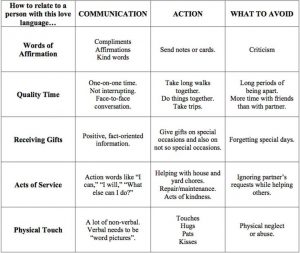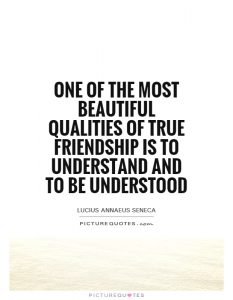
Photo Retrieved from NYTimes
I am the friend that makes all these promises, and sets up dates, but doesn’t keep them.
I promise you it’s not on purpose though! In the moment I really do want to spend the time with my close friends, and I say yes with all intention of committing, but then things come up and I end up not holding my end of the deal. I’m sure as students you guys can relate with having to cancel things because you have class, or you have to write a paper that’s due.
At the same time, my friends know that I am super considerate of things important to them. If it’s an important occasion to them such as a birthday, housewarming, etc, I’ll do whatever I need to do to be there. Or say they have already invested money into something, like bought me a ticket ahead of time, they know I will be there. The thing is with a schedule like mine–juggling work, school, an internship, and my personal life, I heavily prioritize, and that affects my “friend language”.
So what is a friend language?
I don’t know if you have heard this before but they say we all have a love language which is basically how we show, receive, and understand love. This concept was introduced in a popular book, The 5 Love Languages by Dr. Gary Chapman, where he outlines that there are 5 universal ways in which people generally express and communicate love. You can read about them by clicking on this link. Also, if you click on the book title above, you can take a quiz to learn your love language!
The 5 love languages are: words of affirmation, quality time, receiving gifts, acts of service, and physical touch.
Here is a 5 love language “cheat sheet” that shows how people associated with the specific love languages typically define the expression of love.

Photo Retrieved from Printable Pages
Now when it comes to your friend language, it is the same idea. Take a minute to think of your circle of friends. You may have that friend that who does not like to talk on the phone much, so if you want to talk to that friend you know you have to text them. Then you may have that friend who doesn’t like big crowds, so you have to consciously pick and choose things to invite that friend to so they aren’t uncomfortable. You may have that friend who offers great advice and can listen to you go for hours; and on the other hand, you have the friend who doesn’t talk much so you know not to go to them for those extensive conversations. Just think of the differences between your friends, and the things about their communication styles that make them unique.
Knowing your own friend language and the language of your friends can help in figuring out how to best be there for each other. There’s no set in stone definition for “friend languages” (I may actually be the first to coin the term, I should really look into that lol) but it is really about knowing how your friends communicate differently, what is important to them in friendship, and what is important to you.

Photo Retrieved from WCVANDOUWE Blog
What is your friend language? What things do you use to measure friendship? Is it quality time? Do you value friends more when they talk to you every day? Are you transparent with your friends on how you communicate and show that you value their friendship? Do you understand them? I think there is a lot of miscommunication in friendship, and any relationship for that matter, because one does not understand the others language.
I ask myself all the time how can I be a better friend? I have friends that get offended when I do not show up to things they invite me to because part of their friend language is they value quality time and social interaction. Whether you show up for them or not is important to them. Knowing that, I try to honor their feelings and show up to events more often because I know it’s important to them. This example right here is exactly what a friend language is, and how you can seek to learn, interpret, and understand it.
Can you be a better friend to someone now that you have thought about the different ways they may communicate and perceive your actions in the friendship? Is there a friend in your life that you think may not quite understand how you operate as a friend and maybe you need to be more clear?
These are important questions to reflect on because friendship can be beautiful when done right. Just like the picture above says it revolves around the concept of understanding.
Evaluate your friendships today for the better, understanding others is also understanding yourself.
Love ya, Neffi





